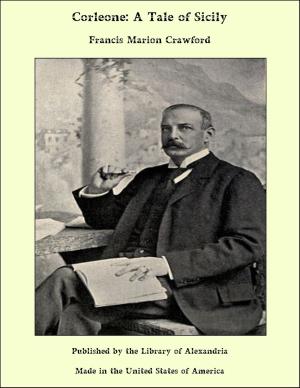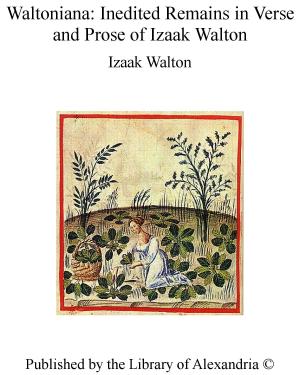Chapters of Opera: Being Historical and Critical Observations and Records Concerning the Lyric Drama in New York from its Earliest Days Down to the Present Time
Nonfiction, Religion & Spirituality, New Age, History, Fiction & Literature| Author: | Henry Edward Krehbiel | ISBN: | 9781465589156 |
| Publisher: | Library of Alexandria | Publication: | March 8, 2015 |
| Imprint: | Language: | English |
| Author: | Henry Edward Krehbiel |
| ISBN: | 9781465589156 |
| Publisher: | Library of Alexandria |
| Publication: | March 8, 2015 |
| Imprint: | |
| Language: | English |
Considering the present state of Italian opera in New York City (I am writing in the year of our Lord 1908), it seems more than a little strange that its entire history should come within the memories of persons still living. It was only two years ago that an ancient factotum at the Metropolitan Opera House died who, for a score of years before he began service at that establishment, had been in various posts at the Academy of Music. Of Mr. Arment a kindly necrologist said that he had seen the Crowd gather in front of the Park Theater in 1825, when the new form of entertainment effected an entrance in the New World. I knew the little old gentleman for a quarter of a century or more, but though he was familiar with my interest in matters historical touching the opera in New York, he never volunteered information of things further back than the consulship of Mapleson at the Academy. Moreover, I was unable to reconcile the story of his recollection of the episode of 1825 with the circumstances of his early life. Yet the tale may have been true, or the opera company that had attracted his boyish attention been one that came within the first decade after Italian opera had its introduction. Concerning another's recollections, I have not the slightest doubt. Within the last year Mrs. Julia Ward Howe, entertaining some of her relatives and friends with an account of social doings in New York in her childhood, recalled the fact that she had been taken as a tiny miss to hear some of the performances of the Garcia Troupe, and, if I mistake not, had had Lorenzo da Ponte, the librettist of Mozart's "Nozze di Figaro" and "Don Giovanni" pointed out to her by her brother. This brother was Samuel Ward, who enjoyed the friendship of the old poet, and published recollections of him not long after his death, in The New York Mirror. For a score of years I have enjoyed the gentle companionship at the opera of two sisters whose mother was an Italian pupil of Da Ponte's, and when, a few years ago, Professor Marchesan, of the University of Treviso, Italy, appealed to me for material to be used in the biography of Da Ponte, which he was writing, I was able, through my gracious and gentle operatic neighbors, to provide him with a number of occasional poems written, in the manner of a century ago, to their mother, in whom Da Ponte had awakened a love for the Italian language and literature. This, together with some of my own labors in uncovering the American history of Mozart's collaborator, has made me feel sometimes as if I, too, had dwelt for a brief space in that Arcadia of which I purpose to gossip in this chapter, and a few others which are to follow it.
Considering the present state of Italian opera in New York City (I am writing in the year of our Lord 1908), it seems more than a little strange that its entire history should come within the memories of persons still living. It was only two years ago that an ancient factotum at the Metropolitan Opera House died who, for a score of years before he began service at that establishment, had been in various posts at the Academy of Music. Of Mr. Arment a kindly necrologist said that he had seen the Crowd gather in front of the Park Theater in 1825, when the new form of entertainment effected an entrance in the New World. I knew the little old gentleman for a quarter of a century or more, but though he was familiar with my interest in matters historical touching the opera in New York, he never volunteered information of things further back than the consulship of Mapleson at the Academy. Moreover, I was unable to reconcile the story of his recollection of the episode of 1825 with the circumstances of his early life. Yet the tale may have been true, or the opera company that had attracted his boyish attention been one that came within the first decade after Italian opera had its introduction. Concerning another's recollections, I have not the slightest doubt. Within the last year Mrs. Julia Ward Howe, entertaining some of her relatives and friends with an account of social doings in New York in her childhood, recalled the fact that she had been taken as a tiny miss to hear some of the performances of the Garcia Troupe, and, if I mistake not, had had Lorenzo da Ponte, the librettist of Mozart's "Nozze di Figaro" and "Don Giovanni" pointed out to her by her brother. This brother was Samuel Ward, who enjoyed the friendship of the old poet, and published recollections of him not long after his death, in The New York Mirror. For a score of years I have enjoyed the gentle companionship at the opera of two sisters whose mother was an Italian pupil of Da Ponte's, and when, a few years ago, Professor Marchesan, of the University of Treviso, Italy, appealed to me for material to be used in the biography of Da Ponte, which he was writing, I was able, through my gracious and gentle operatic neighbors, to provide him with a number of occasional poems written, in the manner of a century ago, to their mother, in whom Da Ponte had awakened a love for the Italian language and literature. This, together with some of my own labors in uncovering the American history of Mozart's collaborator, has made me feel sometimes as if I, too, had dwelt for a brief space in that Arcadia of which I purpose to gossip in this chapter, and a few others which are to follow it.















